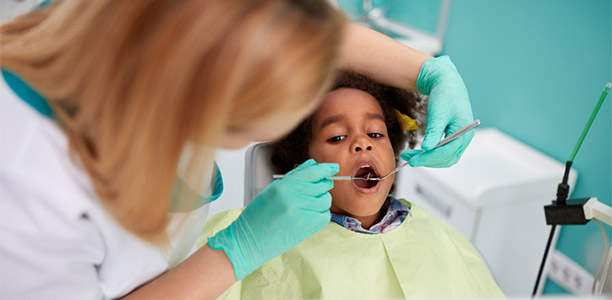James Cook University researchers say children in rural Queensland are three times more likely to be admitted to hospital for dental problems than in other parts of the state.
The team from JCU’s Anton Breinl Research Centre for Health Systems Strengthening, funded by the National Health and Medical Research Council, looked at three rural communities within 400 kilometres of Townsville. The names of the towns have not been publicly released.
Dr Karen Carlisle said although these communities were better served than those in more remote locations, access to services was still an issue for many community members.
“Children under 14 were three times more likely to be hospitalised for dental conditions when compared to residents of the rest of Queensland,” she said.
Dr Carlisle said JCU researchers had been working in the communities for a number of years and suspected overall oral health was poor, but now they had the hard data to back this up.
She said they had some unexpected results too.
“Indigenous persons living in Queensland as a whole are already more than three times as likely to be hospitalised for a dental condition than non-Indigenous people,” said Dr Carlisle. “But this pattern worsened only slightly in the particular rural communities we looked at.”
The researchers said that parents or caregivers play a crucial role in influencing children’s oral health and rural children under 14 years may not be accessing public oral health services in proportion to their need. They said strengthening health promotion though schools, community events and primary health care is vital.
Co-author Professor Sarah Larkins said there were a number of recognised reasons for the poor oral health of rural communities and that the social determinants of health play a major role.
“There are problems with the retention of the oral health workforce in rural areas and reduced availability of oral health services. There may be less access to fluoridated water and the social determinants of ill health, such as poverty and low levels of education, are all more prevalent in rural and remote areas.”
She said the stoicism of rural people and difficulties in accessing care tended to encourage them to tolerate oral health problems until they became acute.
Professor Larkins said the findings highlight the vital importance of a collaborative approach to planning and service delivery to improve oral health for rural communities.
“JCU partners with communities in research to try to make services work better for people living and working in the bush. This extends to frontline engagement too.
“The university sends its health professional students, including dentistry students, to remote and rural regions on placements, to do outreach in schools and encourages its graduates to return back to rural and remote areas to work after graduation,” said Professor Larkins.
Dr Felicity Croker said the communities JCU has focused on have been very receptive to working with students and academics.
“They have really taken charge of improving the oral health in their community, particularly for the younger members of their community. Engaging these communities in changing the direction of their own health care means that the changes are more likely to be appropriate and sustainable.”
(Source: James Cook University)










